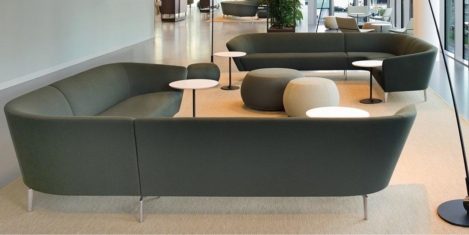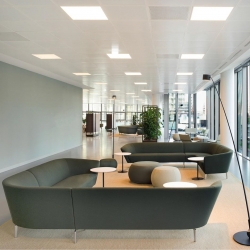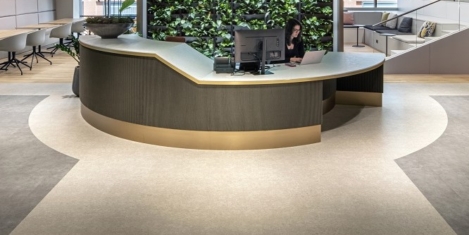To provide the best experiences, we use technologies like cookies to store and/or access device information. Consenting to these technologies will allow us to process data such as browsing behaviour or unique IDs on this site. Not consenting or withdrawing consent, may adversely affect certain features and functions.
The technical storage or access is strictly necessary for the legitimate purpose of enabling the use of a specific service explicitly requested by the subscriber or user, or for the sole purpose of carrying out the transmission of a communication over an electronic communications network.
The technical storage or access is necessary for the legitimate purpose of storing preferences that are not requested by the subscriber or user.
The technical storage or access that is used exclusively for statistical purposes.
The technical storage or access that is used exclusively for anonymous statistical purposes. Without a subpoena, voluntary compliance on the part of your Internet Service Provider, or additional records from a third party, information stored or retrieved for this purpose alone cannot usually be used to identify you.
The technical storage or access is required to create user profiles to send advertising, or to track the user on a website or across several websites for similar marketing purposes.
 Seconded employees – employees temporarily assigned to a different role, organisation, or department – develop more innovative ideas and influence permanent staff to do the same, according to new research from ESMT Berlin and published in the Strategic Management Journal. Despite the motivation to select new ideas, individuals and organisations often still reject or overlook them. These ideas can be difficult to understand, risky, and challenging as their inherent uncertainty makes it harder to predict reception and usage. More →
Seconded employees – employees temporarily assigned to a different role, organisation, or department – develop more innovative ideas and influence permanent staff to do the same, according to new research from ESMT Berlin and published in the Strategic Management Journal. Despite the motivation to select new ideas, individuals and organisations often still reject or overlook them. These ideas can be difficult to understand, risky, and challenging as their inherent uncertainty makes it harder to predict reception and usage. More →









 According to
According to 
 Office workers now spend more time in the office, with the average creeping up to three and a half days per week compared to
Office workers now spend more time in the office, with the average creeping up to three and a half days per week compared to 


 For many people, a large portion of the day is spent at the workplace. In fact, the average person will spend 90,000 hours at work over a lifetime. The Covid-19 pandemic saw the typical ‘workplace’ setting change for many people, after businesses around the globe were forced to adjust to a ‘work-from-home’ model. Now, three years later, we are starting to see more employees return to the office, with large corporations including JPMorgan, Chase, Apple and Google all announcing plans to bring their workers back to base.
For many people, a large portion of the day is spent at the workplace. In fact, the average person will spend 90,000 hours at work over a lifetime. The Covid-19 pandemic saw the typical ‘workplace’ setting change for many people, after businesses around the globe were forced to adjust to a ‘work-from-home’ model. Now, three years later, we are starting to see more employees return to the office, with large corporations including JPMorgan, Chase, Apple and Google all announcing plans to bring their workers back to base. 






![Gallup has published its 2023 Gallup Global Emotions report [registration] – a study of employee sentiment in the UK workforce](https://workplaceinsight.net/wp-content/uploads/2023/11/frustration-7505960_1280-250x250.png)










November 14, 2023
Republished: The brain-dead megaphone of work
by Mark Eltringham • Comment, Working lives